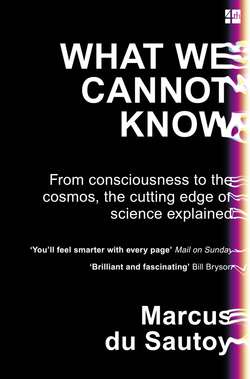Читать книгу What We Cannot Know: Explorations at the Edge of Knowledge - Marcus Sautoy du - Страница 14
KNOWING THE WILL OF THE GODS
ОглавлениеOn a recent trip to Israel I took my children to an archaeological dig at Beit Guvrin. It was such a popular settlement in ancient times that the site consists of layer upon layer of cities built on top of each other. There is so much stuff in the ground that the archaeologists are happy to enlist amateurs like me and my kids to help excavate the site even if a few pots get broken along the way. Sure enough, we pulled out lots of bits of pottery. But we also kept unearthing a large number of animal bones. We thought they were the remains of dinner, but our guide explained that in fact they were the earliest form of dice.
Archaeological digs of settlements dating back to Neolithic times have revealed a disproportionately high density of heel bones of sheep or other animals among the shattered pottery and flints that are usually found in sites that humans once inhabited. These bones are in fact ancestors of my casino dice. When thrown, the bones naturally land on one of four sides. Often there are letters or numbers carved into the bones. Rather than gambling, these early dice are thought to have been used for divination. And this connection between the outcome of the roll of a dice and the will of the gods is one that has persisted for centuries. Knowledge of how the dice would land was believed to be something that transcended human understanding. Its outcome was in the lap of the gods.
Increasingly these dice assumed a more prosaic place as part of our world of leisure. The first cube-shaped dice like the one on my desk were found around Harappa in what is now northeast Pakistan, where one of the first urban civilizations evolved, dating back to the third millennium BC. At the same time, you find four-faced pyramid dice appearing in a game that was discovered in the city of Ur, in ancient Mesopotamia.
The Romans and Greeks were addicts of games of dice, as were the soldiers of the medieval era who returned from the Crusades with a new game called hazard, deriving from the Arabic word for a dice: al-zahr. It was an early version of craps, the game that was being played in the casino in Vegas where I picked up my dice.
If I could predict the fall of the dice, all the games that depend on them would never have caught on. The excitement of backgammon or hazard or craps comes from not knowing how the dice are going to land. So perhaps gamers won’t thank me as I try to predict the roll of my dice.
For centuries no one even thought that such a feat was possible. The ancient Greeks, who were among the first to develop mathematics as a tool to navigate their environment, certainly didn’t have any clue how to tackle such a dynamic problem. Their mathematics was a static, rigid world of geometry, not one that could cope with the dice tumbling across the floor. They could produce formulas to describe the geometric contours of the cube, but once the dice started moving they were lost.
What about doing experiments to get a feel for the outcomes? The anti-empiricist attitude of the ancient Greeks meant they had no motivation to analyse the data and try to make a science of predicting how the dice would land. After all, the way the dice had just landed was going to have no bearing on the next throw. It was random and for the ancient Greeks that meant it was unknowable.
Aristotle believed that events in the world could essentially be classified into three categories: ‘certain events’ that happen by necessity following the laws of nature; ‘probable events’ that happen in most cases but can have a few exceptions; and finally ‘unknowable events’ that happened by pure chance. Aristotle put my dice firmly in the last category.
As Christian theology made its impact on philosophy, matters worsened. Since the throw of the dice was in the hands of God, it was not something that humans could aspire to know. As St Augustine had it: ‘We say that those causes that are said to be by chance are not non-existent but are hidden, and we attribute them to the will of the true God.’
There was no chance. No free will. The unknowable was known by God, who determined the outcome of the dice. Any attempt to try to predict the roll was the work of a heretic, someone who dared to think they could know the mind of God. King Louis XI of France even went as far as prohibiting the manufacture of dice, believing that games of chance were ungodly. But the dice like the one I have on my desk eventually began to yield their secrets. It took till the sixteenth century before dice were wrestled out of the hands of God and their fate put in the hands, and minds, of humans.
